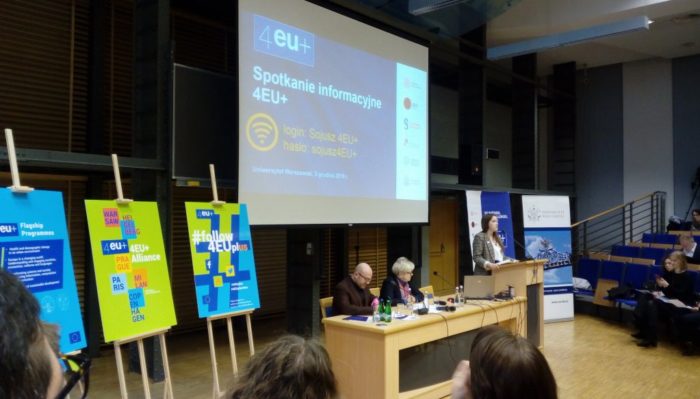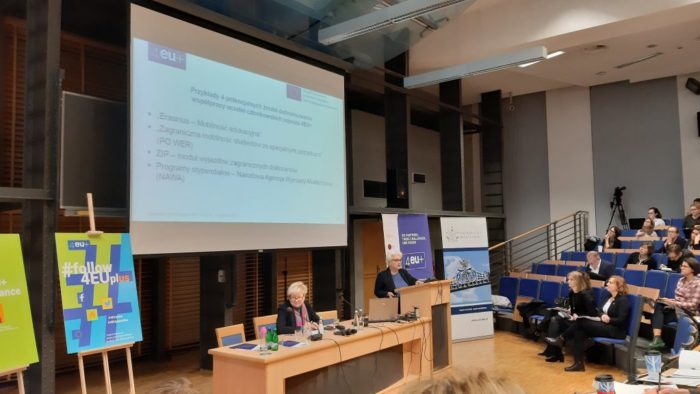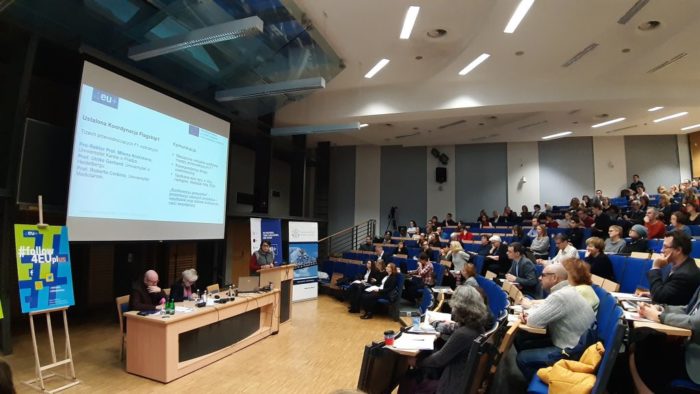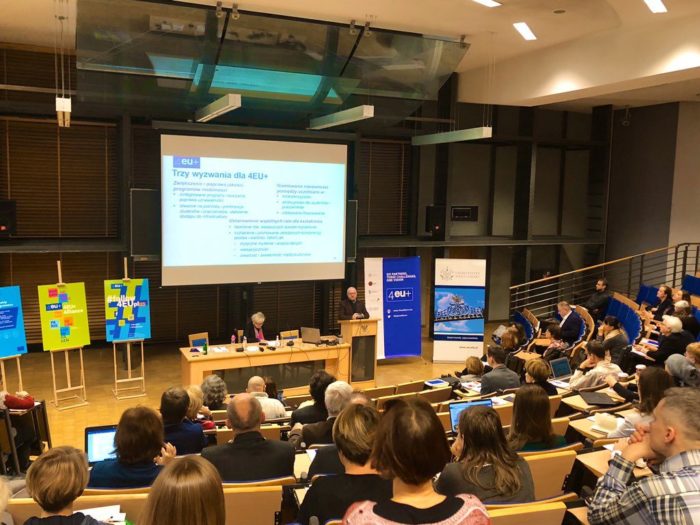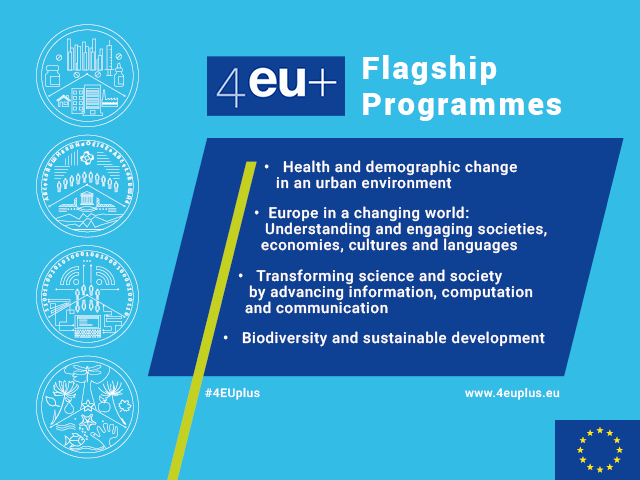On 5th December, the University of Warsaw organised a 4EU+ information meeting for its entire academic community.
4EU+ is a consortium of six comprehensive, research-intensive, public universities from four regions of Europe to strengthen the European vision of deepened cooperation and mutual enrichment by developing a new quality of cooperation in teaching, education, research and administration, leading to the creation of a truly integrated European University System.
The 4EU+ Alliance, with the University of Warsaw as its member, is among the consortia selected for funding in the first pilot ‘European Universities’ call for proposals, launched as part of the 2019 Erasmus+ programme. The European Commission announced the results in June this year. On 7th-8th November, in Brussels, the European University Initiative was officially launched. More information >>
On 5th December, students, doctoral candidates, researchers and administrative staff participated in the 4EU+ Alliance meeting at the University of Warsaw. The event was an excellent opportunity to discuss educational initiatives, and possibilities for students, doctoral candidates and staff.
Research-based education
Prof. Maciej Duszczyk, UW Vice-Rector for Research and International Relations, welcomed everyone, presented the 4EU+ mission and vision and spoke about a spectrum of possibilities which UW has as a member of the Alliance.
Educational activities were the main theme of the speech of Prof. Jolanta Choińska-Mika, UW Vice-Rector for Student Affairs and Quality of Teaching.
4EU+ Flagships Coordinators at UW (Dr. Catherine Suski-Grabowski, Flagship 1; Prof. Agnieszka Świerczewska-Gwiazda, Flagship 3; Dr. Julia Pawłowska, Flagship 4) and Prof. Agata Bareja-Starzyńska, member of Flagship 2 Programme Committee, invited all members of UW community to get involved in research-based projects carried out by the 4EU+ universities within four flagship programmes:
Initiatives for students and doctoral candidates
Student involvement was also a part of the programme. Marta Burzyńska from the UW Student Union, Tymoteusz Ogłaza from UW Erasmus Student Network focused on collaboration among 4EU+ students and plans for the future. One of the events they mentioned was the 4EU+ Student Conference at the University of Copenhagen.
Josef Fontana from Charles University was a special guest who in his presentation encouraged UW students and doctoral candidates to commit themselves on the 4EU+ offered activities and to come up with some own ideas for mutual collaboration.
Funding, mobility and communication
Attendees of the meeting could also find out about how to get funding for their activities in 4EU+. A person responsible for sharing this knowledge was head of Office for International Research and Liaison, Diana Pustuła.
To boost meaningful mobility is one of the 4EU+ Alliance three challenges. Head of the UW International Relations Office, Sylwia Salamon, enumerated mobility possibilities for students, doctoral candidates and staff.
Last but not least element of the programme was a speech of Anna Korzekwa-Józefowicz, UW Spokesperson, and Marta Brelih-Wąsowska from the Office for International Research and Liaison who stressed the importance of communication within the partner universities and promotion of the entire Alliance.
Online Transmission
More information:
the 4EU+ website: www.4euplus.eu
the 4EU+ Twitter account: https://twitter.com/4EUplusAlliance
the 4EU+ Facebook account: https://www.facebook.com/4EUplusAlliance/
Office for International Research and Liaison – coordinates the UW contribution to the 4EU+
Press Office – responds to media enquiries

